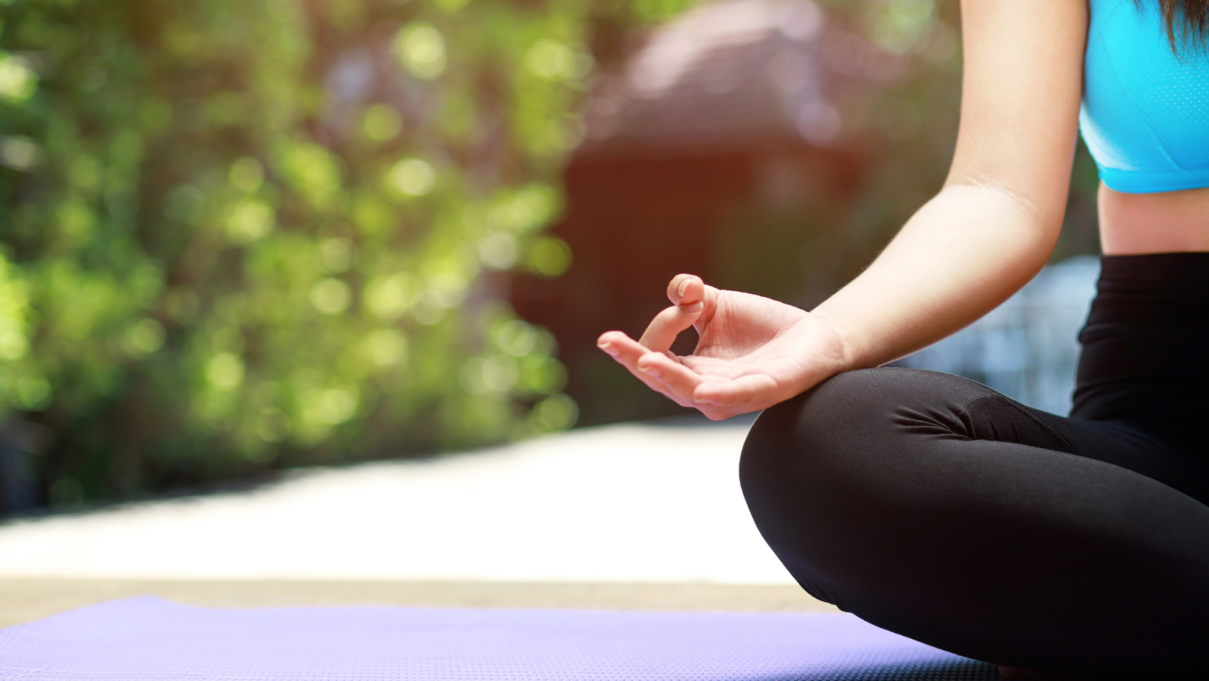
If you're on TikTok - or anywhere these days- you're going to see it. Giant banners and glamorous yoga mat videos where everyone rolls out of bed at 5 a.m., stretches while watching the sunrise, and then practices mindfulness upside-down with warm lemon water.
Your reality? More like blueberries exploding out of the blender and a YouTube session where you didn't realise how painful craning your neck to see the screen is.
Wellness is a full-blown phenomenon, now worth up to £2.8 trillion worldwide. It's selling us macronutrients, dairy-free yogurt, CBD oils, body-positive clothing, sleep apps, ab-sculpting devices, gut-health pills, and a lotion and potion for just about everything.
While the pandemic paused what we once spent money on - flights, bars, concerts, etc. it definitely boosted awareness of wellness. Searches for mental health spiked as millions discovered theirs was suffering, and over half of 16-34-year-olds, this year revealed they're considering quitting their jobs. Stress is up there as a reason.
The question on everyone's lips is how much of a scam wellness products could be. The answer is two-fold. First, there's no way of knowing. Two, it's up to the individual.
Another question is how wellness products can benefit us. Popular podcast Forever 35 a while ago chatted about "fancy soap" - you know, the stupidly expensive ones you'd think long and hard about before opening. While one argument was that, yes, it's a high spend when soap is soap, another angle got popular with listeners. In fact, there was a whole discussion about how the soap itself isn't the wellness boost -the experience is.
If yoga makes you feel good (and you sleep well when you feel good), did you benefit because you stretched your calf muscle six times? Or is it because, in the zen state of peace and "me time," your whole body relaxed itself and recharged?
If you bought a £4 smoothie and could have mashed up bananas and strawberries in a bowl and gotten the same benefit, are you better off with the smoothie? Some might argue yes - if "treating yourself" to something you know is good for you boosted your mood.
Brands don't care why you buy their products, as long as they're selling them. But maybe a part of wellness is considering why you, the consumer, are spending your hard-earned cash. In fact, if you can separate the "pressured" spend from the one you actually want to make, you might just be boosting your wellness by doing so.
So maybe make your wellness your own? If that means treating yourself to an oat milk latte for £4.70, sitting in the sun (hello Vitamin D, but also wear sunscreen) and scrolling Depop, who cares? Provided you can afford it and aren't going to get fired for turning your 20-minute coffee break into a 2-hour absence, don't you deserve it?
Then again, if you're buying the oat milk latte because everyone on Instagram says that's how you lead a "better life" - and you prefer McDonald's coffee - who are you helping?
Perhaps the message here is that self-care is both "self" and "care." It can be quietly knitting at home, soaking in a bubble bath, or stretching. And not just your muscles. Ever tried stretching your brain by learning a new language or picking up a challenging game?
So next time you consider a wellness purchase and wonder if you're being scammed. Think about which aspects of your life will be more "well" with it. The rest should follow.
More for you
Support Young Creators Like This One!
VoiceBox is a platform built to help young creators thrive. We believe that sharing thoughtful, high-quality content deserves pay even if your audience isn’t 100,000 strong.
But here's the thing: while you enjoy free content, our young contributors from all over the world are fairly compensated for their work. To keep this up, we need your help.
Will you join our community of supporters?
Your donation, no matter the size, makes a real difference. It allows us to:
- Compensate young creators for their work
- Maintain a safe, ad-free environment
- Continue providing high-quality, free content, including research reports and insights into youth issues
- Highlight youth voices and unique perspectives from cultures around the world
Your generosity fuels our mission! By supporting VoiceBox, you are directly supporting young people and showing that you value what they have to say.





